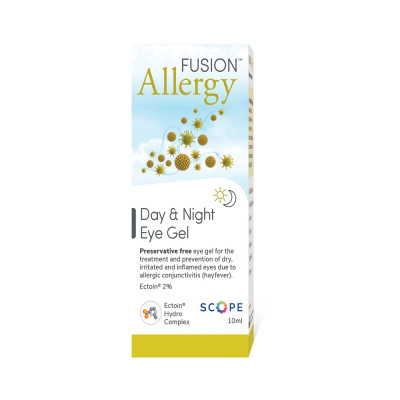
Monthly Offers
Sign up for exclusive offersYour Favourite Brands
View All BrandsRead Our Blog
For The Latest Recipes & MoreFree Delivery
On Orders Over £55Monthly Offers
Sign up for exclusive offersYour Favourite Brands
View All BrandsRead Our Blog
For The Latest Recipes & MoreFree Delivery
On Orders Over £55An allergy is a reaction of the immune system to a particular substance that is harmless to most people. This substance is known as an allergen and can include things like food, pollen, pet dander, or medications. When a person with an allergy comes into contact with an allergen, their immune system overreacts and produces an antibody called immunoglobulin E (IgE). This antibody triggers the release of histamine and other chemicals, causing a range of symptoms, from mild to severe.
Common symptoms of an allergy include sneezing, runny nose, itchy and watery eyes, skin rash, hives, or swelling of the face, lips, tongue, or throat. In some cases, allergies can cause life-threatening anaphylaxis, which requires immediate medical attention.
Allergies can be diagnosed through a combination of medical history, physical examination, and allergy testing. Treatment options vary depending on the type and severity of the allergy, but they can include medications like antihistamines, decongestants, or corticosteroids, and allergen-specific immunotherapy.
Preventing allergic reactions involves avoiding exposure to known allergens, which may require changes to a person's environment or lifestyle.
While sinus infections and allergies have similar symptoms, they particularly differ in the colour and texture of mucus. If you have a cold, the mucus from sneezing or coughing tends to be thicker and green/yellow in colour, while an allergy produces much clearer and thinner mucus. Allergies also tend to cause itchiness around the eyes, whereas a sinus infection will not.
Even though conventional allergy medicines often provide relief, Natural alternatives work in the exactly the same way but have far fewer side effects, such as drowsiness and other adverse reactions. However different people benefit from different remedies, so it may be worth trying more than one to see which works the best for you. Recent research also suggests that maintaining a presence of 'good bacteria' in the gut will reduce the incidence of allergies. With this in mind, taking a high quality Probiotic supplement alongside a varied diet that includes fermented foods and Drinks, may also prove beneficial.
Another study suggests that consuming local Honey from where a person resides will help their Body adapt to the surrounding allergens, and as result, significantly lower the chances of that person experiencing seasonal allergy symptoms.